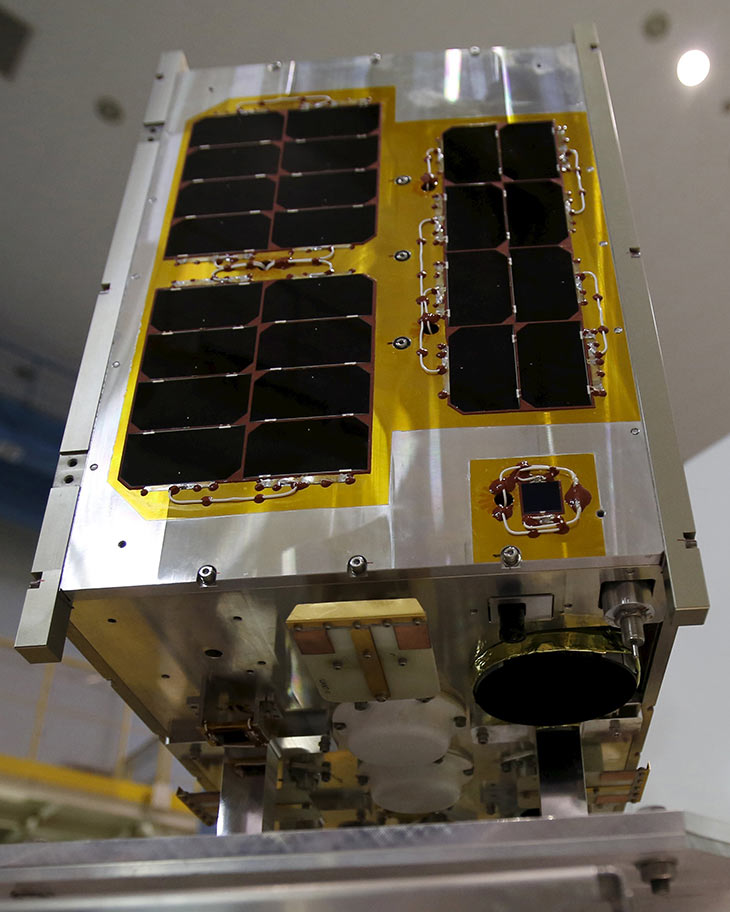LOOK: 'Diwata-1,' the Philippines' first satellite | ABS-CBN
ADVERTISEMENT

Welcome, Kapamilya! We use cookies to improve your browsing experience. Continuing to use this site means you agree to our use of cookies. Tell me more!
Yuya Shino,
Reuters
Published Jan 13, 2016 06:41 PM PHT
|
Updated Sep 13, 2016 11:28 AM PHT
DIWATA-1, the Philippines' first microsatellite, is set for launch this year.
DIWATA-1, the Philippines' first microsatellite, is set for launch this year.
The microsatellite, which was developed in partnership with the Tohoku University and Hokkaido University of Japan, was shown during a media tour at the Japan Aerospace Exploration Agency (JAXA) Tsukuba Space Center in Tsukuba, Japan, on Wednesday.
The microsatellite, which was developed in partnership with the Tohoku University and Hokkaido University of Japan, was shown during a media tour at the Japan Aerospace Exploration Agency (JAXA) Tsukuba Space Center in Tsukuba, Japan, on Wednesday.
DIWATA-1 will gather “on-demand and real-time status of the country’s environment, particularly for applications such as disaster risk management, land-use, and aquatic resource assessment and monitoring,” according to the Department of Science and Technology.
DIWATA-1 will gather “on-demand and real-time status of the country’s environment, particularly for applications such as disaster risk management, land-use, and aquatic resource assessment and monitoring,” according to the Department of Science and Technology.
Here's a look at the microsatellite:
Here's a look at the microsatellite:
ADVERTISEMENT
Mobile users can view the desktop version of the slideshow here.
Mobile users can view the desktop version of the slideshow here.

DIWATA-1, Philippines' first micro satellite for multi spectral high precision earth observation, is seen during a media tour at the Japan Aerospace Exploration Agency (JAXA) Tsukuba Space Center in Tsukuba, north of Tokyo, Japan, January 13, 2016. Yuya Shino, Reuters
DIWATA-1, Philippines' first micro satellite for multi spectral high precision earth observation, is seen during a media tour at the Japan Aerospace Exploration Agency (JAXA) Tsukuba Space Center in Tsukuba, north of Tokyo, Japan, January 13, 2016. Yuya Shino, Reuters
ADVERTISEMENT
ADVERTISEMENT


